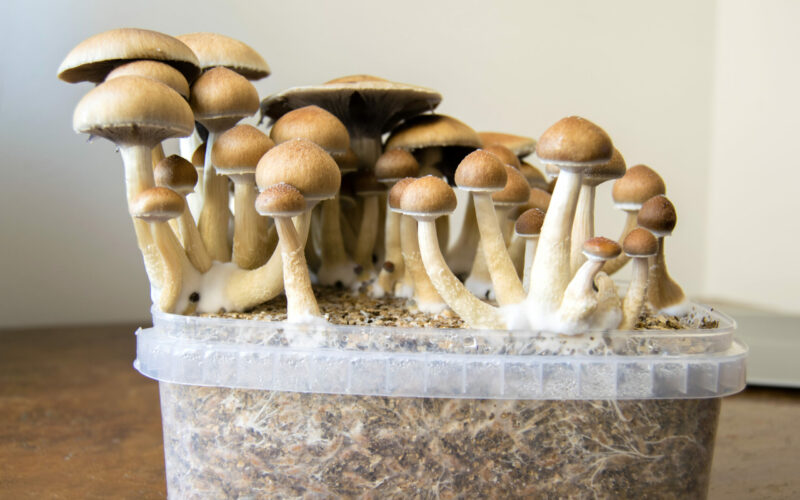The surge in home mushroom-growing could lead to a biodiversity crisis, UK garden experts caution. The Royal Horticultural Society (RHS) has raised concerns about the potential impact of non-native fungi on the soil microbiology when grown in gardens or disposed of in compost heaps.
This year, the RHS Chelsea Flower Show’s plant of the year award shortlist included the tarragon oyster mushroom, marking the first time a fungus was featured, reflecting the growing interest in mushroom cultivation. Scientists at Kew Gardens in London have noted an increase in inquiries about garden mushroom-growing since installing new mushroom beds in their kitchen garden.
While native mushrooms can benefit soil health and establish symbiotic relationships with plants, experts fear that non-native varieties might cause ecological issues similar to those caused by other invasive garden plants. Once fungi establish in the soil, they are challenging to remove due to their tiny mycelium and spores.
Past experiences with invasive plants like Japanese knotweed, rhododendron, and bamboo highlight the risks. These plants have spread extensively, damaging homes and ecosystems. Similarly, non-native fungi could alter soil microbiology and become nearly impossible to eradicate.
Sheila Das, a garden manager at RHS Wisley, expressed concerns about the potential spread of exotic fungi. “The opportunities to grow edible fungi at home are exciting, but we must ensure we buy kits from trusted suppliers,” she said. “Introducing alien fungi could unlock many issues, just as we’ve seen with invasive plants and imported diseases.”
Das emphasized the importance of selecting mushroom grow kits that contain species native to the UK. “Many home kits are designed for indoor growing, but disposal in compost heaps or gardens could spread non-native fungi, potentially disrupting local ecosystems,” she added.
Dr. Ruth Chitty, an RHS plant pathologist, highlighted the knowledge gaps regarding introducing mushroom spawn from other countries. “Research shows genetic variations in mushroom populations globally, and we don’t fully understand the impact of introducing these variations to the UK,” she explained. “Non-native species might outcompete native fungi, causing ecological imbalances.”
At RHS Wisley, the focus is on cultivating locally found species like oyster mushrooms, coral tooth fungus, turkey tail, and birch polypore brackets to explore their benefits for plants and wildlife.
In summary, while the mushroom-growing trend presents exciting opportunities, UK experts urge caution to prevent potential biodiversity issues by ensuring the use of native fungi species in home gardens.








